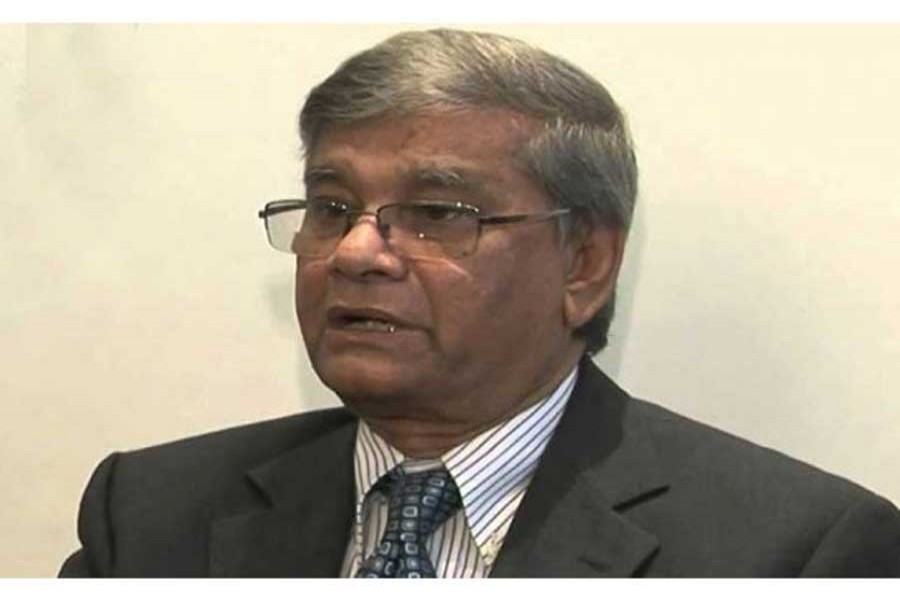Organised quarters and powerful trade bodies influenced the selection process and policy formulation in the allocation and distribution of the stimulus packages meant for the Covid-19 victims, a study revealed on Saturday.
The study found that the government financial assistances for the export-oriented industries, including readymade garments (RMG), and their workers, reached the beneficiaries soon after the pandemic broke out while the recipients in the non-export sectors, including tourism and CMSMEs, received this far later.
"The way financial assistances were provided, one can draw conclusion that organised quarters or influential groups set the priority in getting policy supports for stimulus packages," Dr Mohammad Abdur Razzaque, chairman of RAPID, said while presenting the study findings.
The study also found that despite huge success in managing the pandemic, weak intuitional capacity and lack of informed policy analysis in determining deserving beneficiaries left many without benefits of stimulus packages.
Absence of need assessment and proper targeting process also weakens the transparency mechanism as funds might have been channelted to those who do not even need support, observed the study.
The study findings were made public at a webinar titled 'Covid-19 Stimulus Packages: An Analysis of Institutional Capacity, Transparency, and Accountability', organised by Asia Foundation, Research and Policy Integration for Development (RAPID) and Economic Reporters' Forum (ERF).
Speaking as the chief guest, Planning Minister MA Mannan said due to a lack of authentic data the government delayed in allocation and distribution of the stimulus packages for the marginalised groups.
"We need to upgrade the household database accurately so that the government can make quick decisions for implementation of any kind of programme like stimulus and other development activities," he said.
The government's stimulus packages have certainly had a positive impact; Bangladesh ranked 22nd among the top 53 economies in the world last December and this January, however, it has come down to 29th, he added.
He noted that despite some limitations, Bangladesh has been praised by the world for tackling Covid-19 pandemic and keeping the economy in a positive growth trend.
The minister said that 100 per cent success of the project depended on authentic information of the target group along with accessibility of researchers and relevant people who would work for them.
"Immediate response measures are more important in any emergency or crisis situation for a government than waiting for data collection," MA Mannan said.
He said in the Covid-19 pandemic case, the government has done just that; of course it has been done through the banking sector and other countries in the world have done the same.
"There may have been some misunderstandings at first in identifying who would benefit from this. But later they were fixed. In most cases the beneficiary is properly identified. The main goal of the government is to solve the problem," he added.
Speakers of the webinar opined that incentive packages announced by the government have played a very effective role in tackling the effects of Covid-19 pandemic in the economy and its recovery.
According to them, institutional capacity for effective implementation of crisis management initiatives needs to be enhanced along with reform policy.
Dr Md Kawser Ahmed, member (secretary) of the general economic division of the Planning Commission, and Dr Md Khairuzzaman, additional secretary, ministry of finance, spoke at the function as the special guests.
Sharmeen Rinvy, ERF president, presided over the function while its secretary SM Rashidul Islam, moderated the webinar.
Dr Naznin Ahmed, country economist of UNDP, Nurul Alam, deputy general manager of Bangladesh Bank, Md Anwar Faruk Talukder, executive vice president of DBBL, Dr Abu Eusuf, executive director of RAPID, and Kazi Faisal Bin Seraj, country director of Asia Foundation, among others, spoke.


